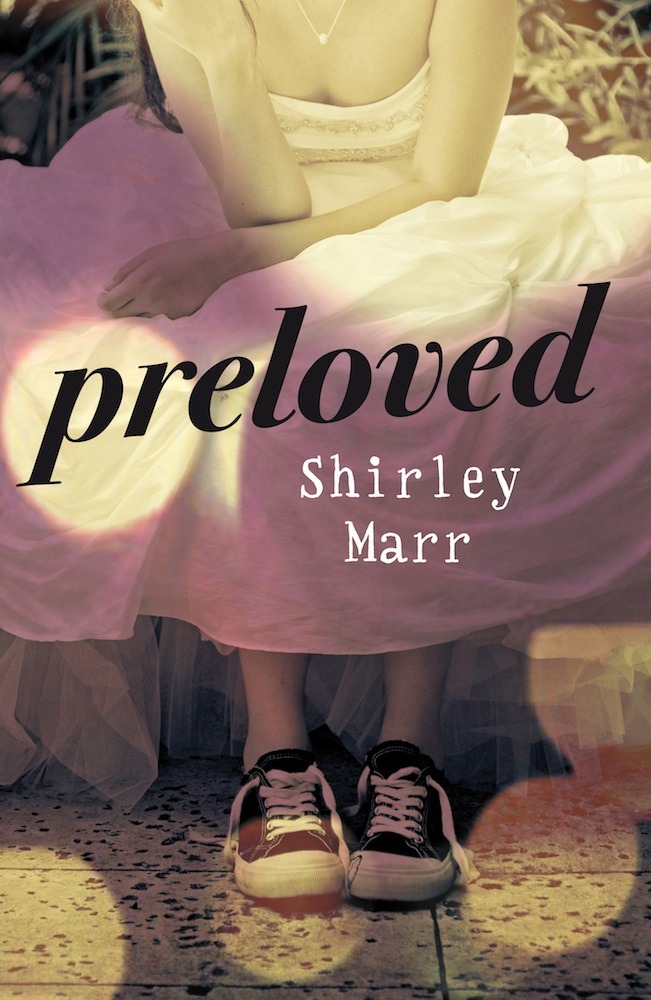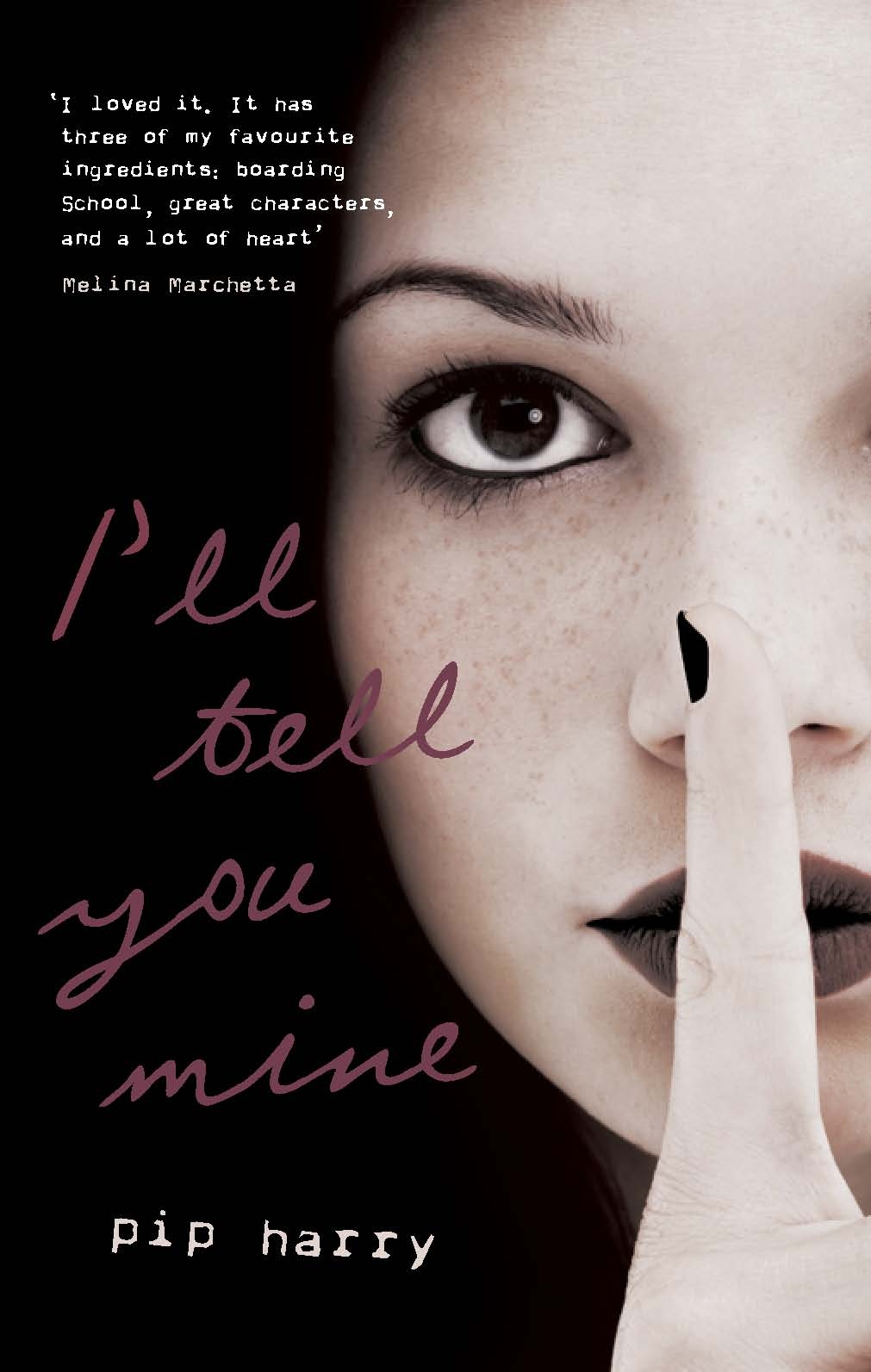
Hi everyone! Welcome to Steph Bowe's wonderful blog. As Preloved is my second novel and Steph is currently writing her second novel, what better thing for me to guest post about than well, second novels?
Second Novel Syndrome is a real affliction. I know because I Googled it and the Internet told me it’s real. Apparently it’s a type of performance anxiety that specifically happens to first-time authors trying to write their second book. And apparently it strikes down the majority of all authors. I can’t speak for everyone else, but I certainly got it. In fact I got it so bad that it lasted approximately a year and my Publisher who was hoping for a 2011 book after my 2010 debut didn’t even get a draft until after the deadline for publication ticked past! Shirley’s never been one to shy away from telling the truth or revealing the unglamorous side so I'm just gonna be frank.
It makes sense that it should be hard. It’s just like the second attempt at anything really. Album. Movie sequel. The relationship that comes after that first one true love where that asshat you’ll never-ever-ever speak to again tore out your bleeding heart and stomped all over it. The media always speaks about the "difficult sophomore album" to the point that the term has become accepted vernacular. The expectations can be enormous.
The fact that there are actually expectations is itself mind-blowing.
After all, there was most likely zero expectations for the first novel. Being the first would imply that it was probably a hobby, a dream, something that you wrote it as if you were all alone in your bedroom singing into your hairbrush (like me) and publication seemed a vague, mystic and distant possibility (me also).
The fact that there are actually expectations is itself mind-blowing.
After all, there was most likely zero expectations for the first novel. Being the first would imply that it was probably a hobby, a dream, something that you wrote it as if you were all alone in your bedroom singing into your hairbrush (like me) and publication seemed a vague, mystic and distant possibility (me also).
It might have been an easy write or it might have been difficult, requiring many years and re-writes, but the most important thing is that the manuscript belonged to you. And you didn't belong to anyone, so it's no wonder that this is a time where something brilliant and unexpected might come together from nothing. I personally believe that everyone has one great story in them (even if it is the story of their life - it could be one awesome life) so the reason to write is simple, the actions involved tacit.
When I came to write my second novel, I told myself I was just going to do exactly what I did for the first novel. Just write. Sounds easy enough right? As much as I would like to insist I was still the same person and I was never going to change, things had changed and whether I liked it or not, it was having an effect on me.
Firstly and foremost, I now had a publisher. I don't think most people realise this, but as opposed to churning out everything I now write because I'm an author - they are under no obligation to sign me for another book. They have to actually like my manuscript. But what have I got to lose right? Actually... I had a lot to lose! I was now doing what I had been dreaming of since I was a kid. I had a real book at real bookstores. Secondly, other authors were freaking me out by saying stuff like "Do you know 80% of authors never write a second book? Do you want to just be a statistic?" And thirdly, it is a bit freaky when my publisher wants to talk to me about the marketing plan for... Book 3 and I hadn't even got a Book 2.
Going through that all-consuming desire to become a published author when I wasn't one was hard. Knowing that I finally got what I wanted and it could be taken away from me was a new type of hardness!
It didn't help that I didn't know what to write next. I mean, I had been writing variations of Fury on and off for the past 10 years until it finally came right, I had no Plan B.
StupidIy, I went onto Google (true story) to find a solution. Somehow I ended up on a music website which told me that the second album (and applicable to novels) was “an opportunity to transcend the original fan base and capture the rest of the market”. So I had to please the people who liked my book (who seemed to like my laissez faire writing style) and also the people who didn't like my book (who seemed to dislike my laissez faire writing style)? I'd probably end up writing a book that's going to be shelved as "Biggest Disappointment 2012" on both camps!
Eventually, I did the only thing I could. Which was probably the sensible thing. I sat down and I wrote something that mattered to me. I started arranging and compiling the ghost stories and tales of superstitions my mum used to tell me when I was little, into a narrative. And I started filling it up with all the things that I personal loved and which were symbolic of what made me happy. Regardless of what I should do and what the readers wanted and what was popular and what market I could capture. I can only write for myself and by finding something that made me carry on regardless of whether it was publishable or not, put a new fire in me. I was able to love the writing process again.
I dared asked myself the question I knew the answer to when I first started writing 10 years ago: if I was told that my writing would never be published, would I still write? The answer was still yes!
It was still playing on my mind that I had to lift my game - both in terms of writing ability and commercialbility; that this book had to be better in all aspects than the first – but this goal was challenging in a healthy way and I started to relish it.
Having said that, after I finished, I cried. I cried like a poor little puppy separated from it’s mammy for the first time. But it felt good.
As I write this, I am still unsure about the general reception of my book. And strangely enough, even if it is bad or good, I will still feel proud of myself. It feels I have come a long way and that I went through something necessary.
So my evaluation of Second Novel Syndrome? I wouldn’t change my experience of it. All I can say it is a rite of passage that has taught me how to handle these newfound pressures and what I need to do as a writer. Sometimes I think you have to learn things the hard way. And the fact that many other people go through the same thing gives me a beautiful, bitter-sweet feeling. It makes me feel very human.
 Right now, I look forward to what I will term the Redemptive Third Novel. I know that I am not a One Novel Wonder. My publisher knows I am not a One Novel Wonder. I can do it. I feel good. What it is to be and what the experience will actually be like is still unknown, but I have a feeling it will be wonderful. And who knows, maybe I will be back on Steph's blog next year to talk about it.
Right now, I look forward to what I will term the Redemptive Third Novel. I know that I am not a One Novel Wonder. My publisher knows I am not a One Novel Wonder. I can do it. I feel good. What it is to be and what the experience will actually be like is still unknown, but I have a feeling it will be wonderful. And who knows, maybe I will be back on Steph's blog next year to talk about it.
Third book, here I come.
...
...
Thank you once again Miss Steph for having me. Please make sure you have a look around her blog as she writes these effortlessly cool and very funny introspective pieces (I love the 10 Things that baffle me about YA paranormal romance books).
Please join me tomorrow at The Nocturnal Library where it is my very last day and we do best and worst lists of the 80s! Plus there’s a bonus goodbye present to giveaway. Seeya on the flip side!







